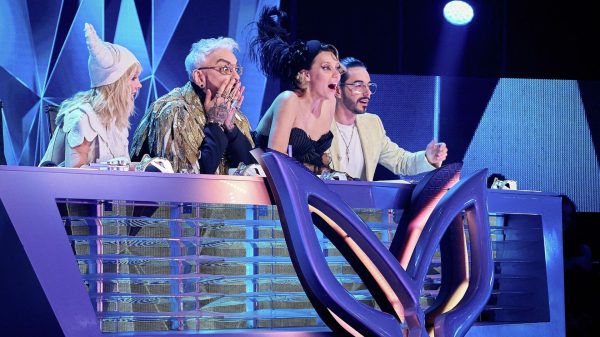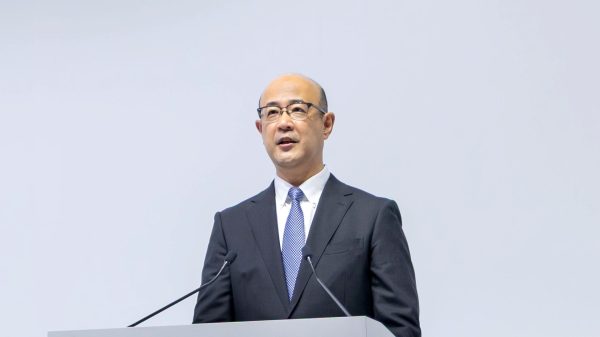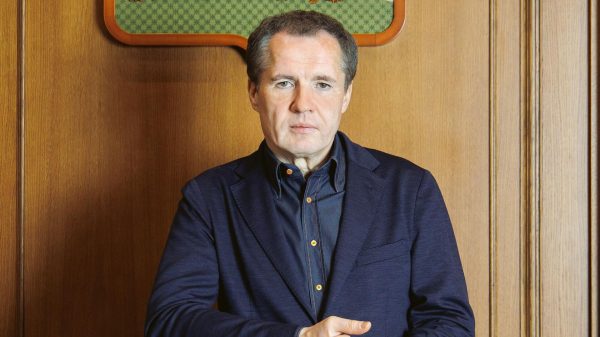Donald Trump was acquitted by the Senate on Saturday in an impeachment trial for his role on the 6 January attack on the US Capitol – a verdict that underscores the sway America’s 45th president still holds over the Republican party even after leaving office.
Democrats fail to secure enough votes to convict Trump in historic second impeachment trial — live
Read more
Trump was the first US president to be impeached twice and is now the first president to be twice acquitted. If convicted, he could have been barred from holding office in the future, but this decision now paves the way – should Trump want to run again – for another tilt at the White House in 2024.
Trump’s acquittal was never in doubt. Seventeen Republicans would have had to join all Democrats to achieve the two-thirds majority needed to convict Trump of high crimes and misdemeanors. Several Republicans argued that the trial was unconstitutional, even though a majority of the Senate voted on Tuesday to proceed with the trial.
The final vote tally was 57-43. Seven Republicans voted to convict: Richard Burr of North Carolina and Bill Cassidy of Louisiana joining five who were expected to turn against Trump: Susan Collins of Maine, Lisa Murkowski of Alaska, Mitt Romney of Utah, Ben Sasse of Nebraska and Pat Toomey of Pennsylvania.
The swift conclusion of Trump’s historic second trial was briefly thrown into doubt after House managers unexpectedly moved to call witnesses in an effort to shed light on the former president’s state of mind during the hours-long Capitol siege. The Democratic managers were not expected to call witnesses, but changed their minds after a new account by congresswoman Jaime Herrera Beutler, one of only 10 House Republicans who voted to impeach Trump.
In a statement on the eve of the vote, Herrera Beutler said Congressman Kevin McCarthy, the House Republican leader, told her he had called Trump after the breach of the Capitol on 6 January to beg him to tell his supporters to stand down and that Trump sided with the rioters.
“Well, Kevin, I guess these people are more upset about the election than you are,” Trump told McCarthy on the call, according to Herrera Beutler’s recollection, which she has shared repeatedly since the attack. On Friday, she urged Republicans to come forward and share what they know about Trump’s decision-making during the riot before it was too late.
After a frantic bout of uncertainty in which it appeared proceedings might take several more weeks, the managers struck a deal with Trump’s lawyers to enter Herrera Beutler’s statement into the record and drop their push to call witnesses.
The House of Representatives impeached Trump in his final days in office on one charge of “incitement of insurrection” of the 6 January siege on the US Capitol.
Trump had invited supporters to Washington on the day electoral college votes were being counted, told them to “fight like hell” and encouraged them to go to the US capitol, Democrats charged.
Once the attack on the capitol turned deadly, placing Vice-President Mike Pence, members of Congress, elected officials and other Capitol Hill employees in danger, Trump violated his oath of office by failing to defend the US government against an attack, the charging documents alleged.
The attack came after Trump spent weeks trying to overturn the results of the 2020 election. Five people died as a direct result of the assault, including a police officer.
Democrats spent days making a meticulous case against Trump to senators that even earned praise among conservative Republicans. Using extensive footage from the Capitol attack, House prosecutors argued that Trump deliberately fomented violence among his supporters, who believed they were acting on his instructions when they breached the Capitol.
The violence was not just a result of the speech he gave on 6 January, they argued, but was encouragement built up over years of Trump sanctioning violence among his supporters.
During the 2016 campaign, they noted, he explicitly encouraged supporters at his rallies to rough up protesters, and he cheered on rioters as they raided the Michigan capitol last year in what would become a “dress rehearsal” for the attack on the US capitol, Democrats said.
The case was emotional, vivid and visceral. The striking evidence presented was a notable contrast to Trump’s first impeachment trial, which was built around documents and testimony from Trump’s effort to pressure Ukrainian officials to help his political fortunes.
The GOP representative at center of Trump impeachment trial drama
Read more
After two days of arguments from Democrats, Trump’s lawyers used just a fraction of the 16 hours allocated to make their case. They used a smattering of approaches, arguing that Trump could not be constitutionally tried because he had already left office and that his speech did not amount to an incitement of violence and was protected by the first amendment.
During their short presentation on Friday, Trump’s lawyers argued that Trump was using the same kind of rhetoric politicians frequently use and said the trial was a “political witch-hunt” and that Trump a victim of “constitutional cancel culture”.
Those arguments largely seemed to be an effort to distort the case against Trump and muddy the waters over the unique context under which Trump encouraged angry supporters to disrupt the activities of the US government as it facilitated the peaceful transfer of power.
Led by Congressman Jamie Raskin, Democrats argued that Trump’s conduct was so egregious that he remained a threat to American democracy.
“If you think this is not impeachable, what is?,” Raskin said as he closed the prosecution’s argument. “If you don’t find this a high crime and misdemeanor today, you have set a new, terrible standard for presidential misconduct in the United States of America.”























































Свежие комментарии